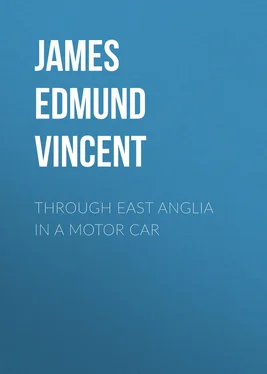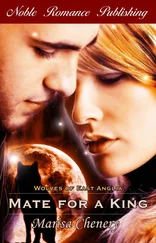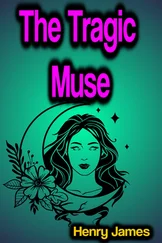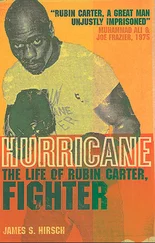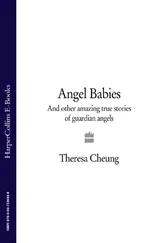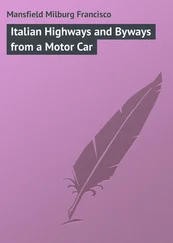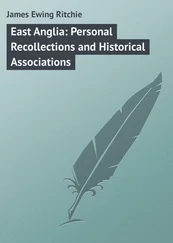James Vincent - Through East Anglia in a Motor Car
Здесь есть возможность читать онлайн «James Vincent - Through East Anglia in a Motor Car» — ознакомительный отрывок электронной книги совершенно бесплатно, а после прочтения отрывка купить полную версию. В некоторых случаях можно слушать аудио, скачать через торрент в формате fb2 и присутствует краткое содержание. Жанр: Путешествия и география, foreign_antique, foreign_prose, на английском языке. Описание произведения, (предисловие) а так же отзывы посетителей доступны на портале библиотеки ЛибКат.
- Название:Through East Anglia in a Motor Car
- Автор:
- Жанр:
- Год:неизвестен
- ISBN:нет данных
- Рейтинг книги:3 / 5. Голосов: 1
-
Избранное:Добавить в избранное
- Отзывы:
-
Ваша оценка:
- 60
- 1
- 2
- 3
- 4
- 5
Through East Anglia in a Motor Car: краткое содержание, описание и аннотация
Предлагаем к чтению аннотацию, описание, краткое содержание или предисловие (зависит от того, что написал сам автор книги «Through East Anglia in a Motor Car»). Если вы не нашли необходимую информацию о книге — напишите в комментариях, мы постараемся отыскать её.
Through East Anglia in a Motor Car — читать онлайн ознакомительный отрывок
Ниже представлен текст книги, разбитый по страницам. Система сохранения места последней прочитанной страницы, позволяет с удобством читать онлайн бесплатно книгу «Through East Anglia in a Motor Car», без необходимости каждый раз заново искать на чём Вы остановились. Поставьте закладку, и сможете в любой момент перейти на страницу, на которой закончили чтение.
Интервал:
Закладка:
Back came Suffolk, trembling and pale, for fear of consequences, to announce the news that was known to him, for he had made it all too certain before he left the "room of state" upon his futile errand. We can almost hear the dull sound of the swooning King's fall, and his agonized lament:—
For in the shade of death I shall find joy;
In life but double death now Gloucester's dead.
And what comes next? Surely it is essentially characteristic of the people of East Anglia:—
The Commons, like an angry hive of bees,
That want their leader, scatter up and down.
Here, again, the substratum of authentic fact is, as in the case of St. Edmund, made the foundation of an imaginative structure; but see how vast is the difference between the effects produced by the paltry monkish embroiderer and the Poet, the maker, the creator. The first tale almost raises a smile of incredulity; the second, written in characters of blood and tears, stirs the heart to its depths.
Bury has its lighter memories and associations too. Many good Englishmen who would not step far out of their way to make a pilgrimage to what was once St. Edmund's shrine, who might even feel that the second part of King Henry VI was a little above their heads, may be relied upon to take a great deal of trouble for the sake of treading in the footsteps of the immortal Mr. Pickwick. It was at the "Angel" in Bury St. Edmunds, still "a large inn standing in a wide open street, and nearly facing the Old Abbey," that Mr. Pickwick enjoyed "a very satisfactory dinner." This was, as we shall have occasion to see at Ipswich, high praise indeed when uttered by the author of Mr. Pickwick's being, who, if displeased by the accommodation and fare offered to him, did not hesitate to express his opinion with remarkable force of language. In the tap-room of the said "Angel," Mr. Weller, having been voted into the chair, cracked such jests and evoked such uproarious laughter that his master's rest was broken. The pump in the "Angel" yard cooled Sam's throbbing head next morning so effectually that, shortly afterwards, he was able to describe the stranger in the mulberry suit, stranger as he deemed him, as looking "as conwivial as a live trout in a lime basket." In the adjoining tap, again, Sam, "the names of Veller and gammon" having "come into contract" for the one and only time in that veracious history, cemented his alliance with the deceitful Job Trotter over gin and cloves. He took the doubtless fragrant and pungent beverage as a pick-me-up in the morning; it might have served us, perhaps well, as a warmth-restorer in the afternoon; but candour compels the confession that, for the moment, we forgot the Pickwick Papers , drew up in front of the "Suffolk," not the "Angel," and did our best to restore heat to our chilled bodies by gargantuan consumption of crumpets, tea, and jam. Even this was mildly Pickwickian (who can forget the story of the gentleman who demonstrated by devoted self-slaughter the proposition that crumpets is wholesome?). But as we did not drink gin and cloves in honour of Sam Weller, so we did not blow out our brains to prove the wholesome character of crumpets.
Yet one more Pickwickian association of Bury St. Edmunds must be set down. In a private room of the "Angel" the artful Mr. Trotter, having "gammoned" Sam, proceeded to "gammon" his innocent master also with the story of "the large, old, red-brick house just outside the town, sir," and the pretended revelation of his own master's nefarious intentions. Hence came kindly Mr. Pickwick's ludicrously pathetic vigil in the garden, alarm of maids, hysterics of Miss Smithers, drenching of Mr. Pickwick, doubts whether he was burglar or lunatic, imprisonment in the Clothes Closet, rescue and explanation by Mr. Wardle, rheumatics of Mr. Pickwick, and, last of all, the Parish Clerk's tale. These things are not history of course, "which there never war no sich a person" as Mr. Pickwick, but they are imperishable and essential truths none the less, and the Pickwick Papers are a possession of Bury St. Edmunds at least equal in commercial value to all the legends of St. Edmund, King and Martyr. So much for Bury on this occasion. We shall see it again, and foregather this time at the "Angel."
We left the hotel, to find cold and windless darkness in full possession. It was my first experience of driving in a motor-car on a dark night for any considerable distance through an unknown country. The first few miles, through Bayton and Woolpit, were very difficult, the road sinuous as a corkscrew, the necessity for dismounting to study the sign-posts constantly occurring. In marked contrast, however, to experience in some of our southern counties, was the alert intelligence of the country-folk. From Stowmarket the road to Ipswich, our destination, was straight, but seemed endless. At first we tried to proceed with oil lamps only; then we were driven to acetylene; but, with air none too clear at any time and wreaths of denser mist now and again, even the acetylene rays did not penetrate very far. On the whole, cold apart, this kind of driving at night is not to be recommended. I remember nothing of that journey to Ipswich, except the cold and the mild excitement of trying to guess the species of the splendid trees passed by their shadowy forms and general character. Oaks I saw, and elms and beeches for certain—for the form of these may not easily be mistaken. In the matter of ashes I would not like to pledge my faith, for one might easily mix up an ash tree in winter, half seen by a light not thrown distinctly upon it, with some other tree. But the best thing I remember of that night, out of doors, was the sight of the lights of Ipswich and of the tall tramcars, which told us that we were there at last.
Neither fate nor inclination has taken me down this same road by daylight since then, but something may be said of the places passed in the darkness, with due acknowledgment of the aid afforded by Mr. W. A. Butt's Suffolk , in the "Little Guides Series" (Methuen). The acknowledgment is made the more gladly, and the aid is borrowed with the more confidence that it will not prove a broken reed, because "in another place" and at another time I have had the privilege of knowing Mr. Dutt in MS. as a careful and fascinating writer, equally learned in antiquities and in ornithology, and very much at home in East Anglia. Had it been light we might have seen at Tostock a fine church, Perpendicular in the main, but with an early Decorated chancel. As motorists, however, we should hardly have been induced to descend and explore the interior even by the hope of seeing carved oak benches, one of them showing "the fabulous cockatrice" and another the unicorn scratching himself with his horn. At Woolpit we might have seen a new tower to an old church, the tower built no later than 1854. But the tower is no outrage, for it had to be built to replace an older one destroyed by lightning. To Woolpit, too, belongs one of William of Newburgh's strange legends, thus summarized by Mr. Dutt: "One day, while some men were at work in a harvest field here, they saw a boy and a girl, whose bodies were green and their dresses of a strange material, appear out of the pits known as the 'Wolfpittes.' They said they had come from a Christian land, which had churches, but where there was no sun, 'only a faint twilight, but beyond a broad river there lay a land of light.' Their country was called the land of St. Martin; and, one day, while they were tending their father's sheep, they heard a noise like the ringing of the bells of Bury Abbey, 'and all at once they found themselves among the reapers in the harvest field at Woolpit.' The boy, we are told, soon died, but the girl lived to marry a man of Lynn." The name of the place in Domesday is "Wlfpeta," which is simply "Wolf-pit," but why this particular wolf-pit, out of the hundreds that there must have been, retained the name, there is nothing to show. At Haughley, moved to alight by some of the guide-books in the hope of finding ruins, we should have discovered a mound only, its origin quite uncertain; and at Stowmarket there would have been no temptation to halt. Chemicals and cordite combine to give the ancient market town some prosperity, some calamities, and no beauty. Here we began to follow the course of the railway and the River Gipping, the eponymous river of Ipswich until it is named anew. At Great Blakenham we passed a manor given by Henry VI to Eton College, and at Claydon an Elizabethan hall.
Читать дальшеИнтервал:
Закладка:
Похожие книги на «Through East Anglia in a Motor Car»
Представляем Вашему вниманию похожие книги на «Through East Anglia in a Motor Car» списком для выбора. Мы отобрали схожую по названию и смыслу литературу в надежде предоставить читателям больше вариантов отыскать новые, интересные, ещё непрочитанные произведения.
Обсуждение, отзывы о книге «Through East Anglia in a Motor Car» и просто собственные мнения читателей. Оставьте ваши комментарии, напишите, что Вы думаете о произведении, его смысле или главных героях. Укажите что конкретно понравилось, а что нет, и почему Вы так считаете.
